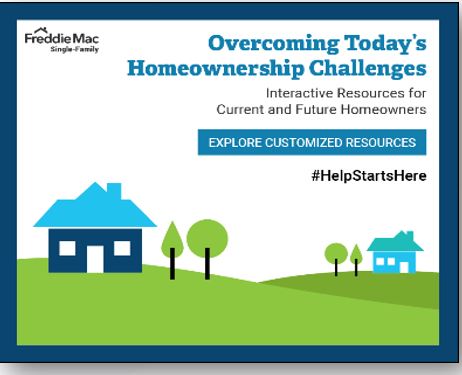Do I Need A Zero Percent Debt-to-Income Ratio (DTI) To Buy a Home?
The NFCC often receives readers questions asking us what they should do in their money situation. We pick some to share that others could be asking themselves and hope to help many in sharing these answers. If you have a question, please submit it on our Ask an Expert page here.
This week’s question: I have the ability to pay for my debts and I’m wondering if a zero DTI is good. I’m looking at buying a house next July.
A 0% debt-to-income ratio (DTI) means that you don’t have any debts or expenses, which does not necessarily mean that you are financially ready to apply for a mortgage. In addition to your DTI, lenders will review your credit score to assess the risk of lending you money. The specific requirements vary from lender to lender. But, most lenders look for a 35% or lower DTI and a minimum credit score above 620 to qualify for a conventional loan. On the other hand, FHA loans have more flexible requirements.
How to calculate your DTI
Your DTI determines the percentage of your gross income used to pay for your debts and certain recurring expenses. There are two types of ratios, the front-end and the back-end DTI, which is what lenders focus on the most when applying for a mortgage. To calculate your front-end DTI, add your home-related expenses such as mortgage payments, property taxes, insurance, and homeowner’s association fees. Then, divide them by your monthly gross income, and multiply it by 100. Most lenders look for a 28% front-end DTI.
On the other hand, to calculate your back-end ratio, add your monthly expenses such as rent/mortgage, credit cards, and other debts, like car payments, student loans, child support, or alimony. Then divide them by your total gross income and multiply it by 100. If your DTI is 35% or lower, you are likely to satisfy the DTI requirements for most lenders to qualify for a loan with the most favorable terms. Having a lower-than-required DTI does not guarantee better terms or rates. Instead, focus on the other parameters that lenders review as part of your loan application, such as your credit score and income.
Monitor your credit score
Your credit score is like a screenshot of your financial behavior as a consumer. So, lenders pay close attention to how you manage your credit. Being solvent to pay off your debts puts you in an excellent position to boost your credit score. If you haven’t reviewed your score, it may be a good time to do so. You can usually get your score free of charge if you are a customer of specific banks or purchase them directly from the credit bureaus, Equifax, Experian, and TransUnion. It’s important to note that either FICO or VantageScore generates most credit scores. And although both models calculate your score using the same information on your credit reports, they differ in how they process it, which results in different scores. Since most mortgage lenders use FICO scores, you should make sure your FICO scores from the three main credit bureaus meet the lenders’ requirements. As a prospective home buyer, you should aim to score higher than 760 to qualify for the best interest rates.
If you are not where you want to be with your credit score or DTI, you have time to get your finances ready to buy a home. You can also enlist the help of an NFCC Certified Financial Counselor to help you understand the lender’s qualifying criteria, save for the down payment, and navigate through the homebuying process. Being prepared enables you to make the most of this exciting step in your life. You are on the right track, good luck!
The post Do I Need A Zero Percent Debt-to-Income Ratio (DTI) To Buy a Home? appeared first on NFCC.
Read more: nfcc.org











